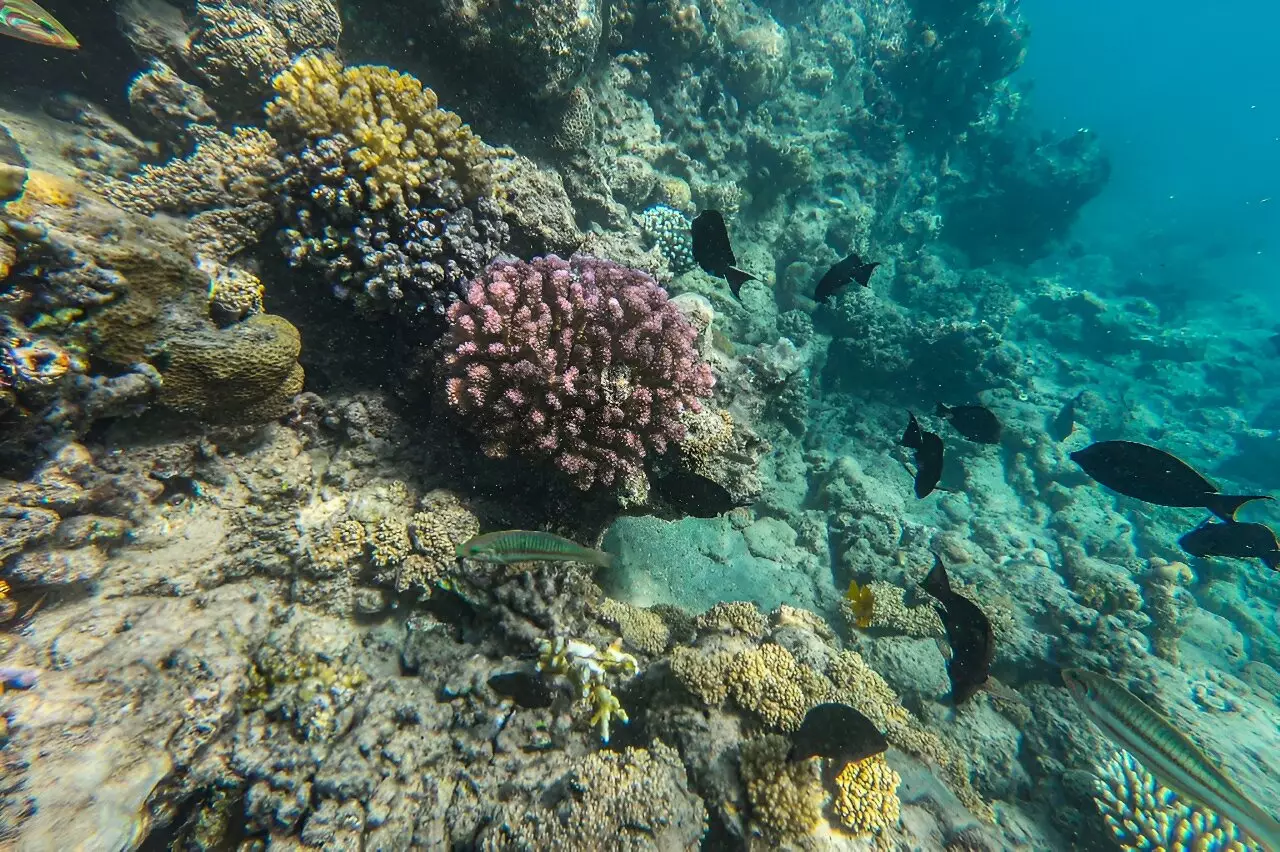Marine heat waves are becoming more frequent and intense as a result of climate change, posing a significant threat to sensitive species. The excessive heat produced by carbon pollution has been largely absorbed by the oceans, leading to abnormally high water temperatures. While the impact of surface heat waves on marine life has been extensively studied, a new research published in the journal Nature Climate Change focuses on the characteristics and effects of temperature spikes in deeper waters. This article aims to analyze the findings of the study and discuss the potential risks posed by deeper and longer marine heat waves on marine species.
The study examines global marine heat waves from 1993 to 2019, including data up to 2,000 meters below the surface. It reveals that the intensity of heat waves is highest at depths ranging from 50 to 200 meters below the surface, occasionally surpassing the strength of surface heat waves by up to 19 percent. Furthermore, the duration of these heat waves increases with depth, persisting for up to two years after temperatures return to normal on the surface. This prolonged exposure to high temperatures poses a significant risk to marine species, particularly those that are unable to migrate to cooler waters.
Biodiversity Impact
To assess the vulnerability of marine species, the researchers examined the cumulative intensity of thermal stress, a proxy measure of the impact of heat waves, against the distribution of biodiversity near their maximum heat limits. The study reveals that high-stress conditions overlap in up to 22 percent of the global oceans. However, the regional variability of marine heat waves and their duration makes it complex to measure the exposure of biodiversity. Fragkopoulou, the lead author of the study, suggests that the impact on biodiversity is most significant from the surface to a depth of 250 meters. In particular, the North Atlantic and Indian oceans, at depths between 1,000 and 2,000 meters, are identified as highly exposed areas.
While the study highlights the vulnerability of marine species to heat waves, a separate research published in the journal Nature suggests that some species may be more resilient than others. The study indicates that ocean fish can tolerate marine heat waves without experiencing major declines in their populations. However, further research is needed to fully understand the potential impacts on tourism and fisheries, particularly in deeper ocean regions where the effects on biodiversity are largely unknown.
The increasing frequency and intensity of marine heat waves pose a significant threat to marine species, especially in deeper waters. The study emphasizes the importance of understanding the characteristics and effects of heat waves in the deep ocean to develop effective conservation and management strategies. Building a comprehensive understanding of the impact on biodiversity, tourism, and fisheries is crucial to mitigate the potential consequences of marine heat waves. Urgent action is required to enhance monitoring efforts and improve our knowledge of the global ocean, in order to protect marine ecosystems in the face of climate change.



Leave a Reply